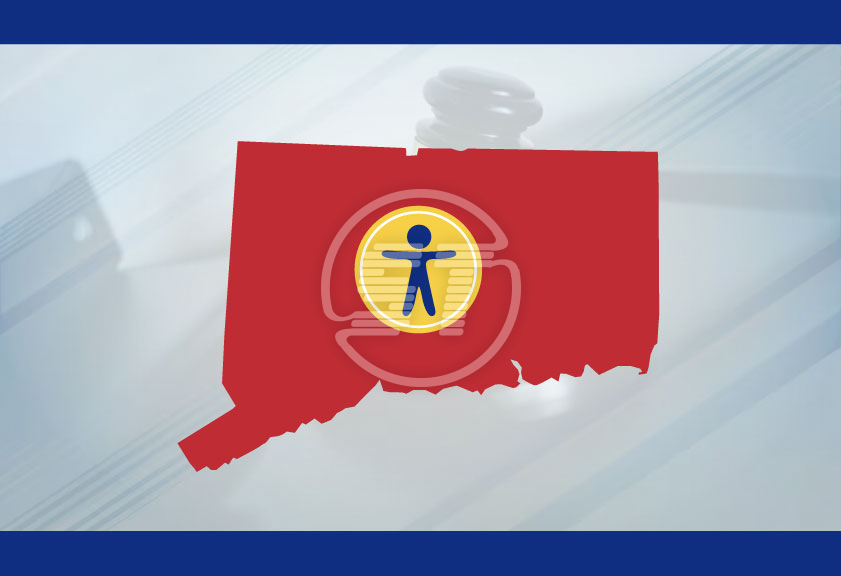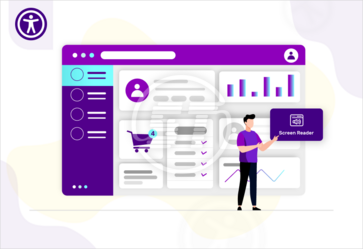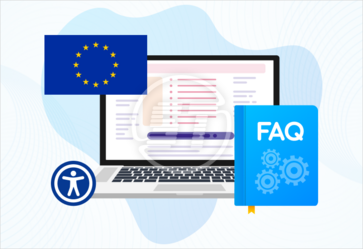Colorado's HB 21-1110 law makes sure that state and local governments have websites that everyone can use. It became a law in 2021. This law takes rules from a bigger law called the Americans with Disabilities Act (ADA) and makes them important in Colorado. This helps people who cannot use regular websites. The law says that websites must follow specific rules for accessibility, like big text and easy navigation. State agencies must follow these rules by 2024, to avoid the consequences for noncompliance. This new law shows that Colorado cares about fairness and wants everyone to be able to use the Internet.
YOU MIGHT ALSO LIKE: ADA Tax Credit
What Is Website Accessibility Law in Colorado?
In response to the recent developments in Colorado, the state has introduced a significant policy aimed at ensuring digital accessibility standards for citizens with disabilities by the year 2024. This initiative emphasizes granting equal access to online resources and services for individuals regardless of their abilities or disabilities.
This legislative effort was championed by Democratic Representative David Ortiz from Littleton, notable for being the first person who uses a wheelchair to serve in the Colorado General Assembly. The passage of House Bill (HB) 21-1110 in July 2021 marked a crucial milestone. This bill mandates that both state and local public entities adhere to established website accessibility standards.
The policy dictates that state agencies must adhere to specific guidelines during the creation or updating of websites and digital content. The primary focus areas encompass ensuring the provision of text alternatives for non-textual content such as images. Furthermore, it entails optimizing navigation menus to be accessible through keyboard commands, ensuring usability beyond solely mouse interactions.
One key aspect of the policy is the requirement for state agencies to incorporate audio descriptions and captions in videos posted online. This provision particularly aids individuals who are deaf or hard of hearing, enabling them to comprehend the content presented in the videos.
Through the adoption of these comprehensive guidelines, the Colorado government is taking substantial strides toward fostering equality in digital access. The endeavor also underscores the significance of representation from underserved groups, as exemplified by Representative David Ortiz's involvement in driving this important legislation forward.
What Is the HB21-1110 Law in Colorado?
The HB 21-1110 law in Colorado, also known as House Bill 21-1110, defines accessibility as ensuring digital content is perceivable, operable, and understandable. This pertains to enabling individuals with disabilities to access the same information, engage in the same interactions, and enjoy the same services as individuals without disabilities, with equivalent privacy, independence, and ease of use.
This bill contributes to enhancing existing Colorado law to combat disability-based discrimination. The additional provisions prohibit the exclusion of persons with disabilities from participating in or benefiting from services, programs, or activities of public entities or state agencies. It emphasizes that this prohibition extends to the failure of these entities to develop an accessibility plan aligned with guidelines set by the office of information technology (office) by July 1, 2024.
The legislation mandates that state agencies submit accessibility plans to the office by July 1, 2022, after which collaborative efforts ensue to establish implementation methodologies. Full implementation of sections related to accessibility standards by state agencies is required by July 1, 2024. Noncompliant state agencies by this date are subject to state penalties.
HB 21-1110 also specifies timelines for state agencies' accessibility plan submission and implementation. It offers citizens impacted by noncompliance accessible routes to address issues through state courts, potentially leading to court orders, fines, or other penalties for noncompliant agencies.
Aligned with digital accessibility guidelines, including the Web Content Accessibility Guidelines (WCAG), this law underscores the principles of perceivability, operability, understandability, and robustness in digital content. It signifies a significant obligation for both state and local public entities to conform to established website accessibility standards.
By July 1, 2024, every state agency website is required to adhere to the accessibility standards set by the office and the latest version of WCAG 2.1. Failure to comply with these standards could result in court orders, monetary damages, or fines, with penalties amounting to $3,500 payable to the plaintiff. This law is particularly crucial for over 4,000 active local governments in Colorado, demonstrating the state's commitment to ensuring equitable digital access for all citizens.
What Are the Applications and Advantages of HB21-1110 Law in Colorado?
1. Representation and Advocacy
This law underscores the significance of representation in legislation. By being introduced by Democratic Representative David Ortiz, who uses a wheelchair, it highlights the importance of including individuals from underserved groups in the legislative process. This serves as a model for promoting the rights of disabled people and championing their cause.
2. Enhanced User Experience
The law encourages state agencies to adopt user-centric design elements in their websites. Prioritizing popular services and optimizing website navigation enhances the user experience for all citizens, including those with disabilities. This not only ensures accessibility but also fosters engagement and trust.
3. Standardization of Accessibility
The law standardizes digital accessibility requirements for state agencies, aligning them with the Web Content Accessibility Guidelines (WCAG) developed by the World Wide Web Consortium. This consistency aids in complying with accessibility standards and creates a uniform experience for users with disabilities across different websites.
4 Reduction of Legal Costs
HB 21-1110's adherence to established accessibility standards can potentially reduce legal costs for both government entities and private businesses. By proactively addressing accessibility concerns, organizations can mitigate the risk of legal action related to noncompliance with accessibility regulations, which often result in substantial legal fees.
5. Improved Online Presence
Websites that conform to accessibility standards are more likely to attract increased traffic and engagement. By providing an inclusive online environment, websites become reliable and trustworthy resources for residents, thereby enhancing their overall online presence.
YOU MIGHT ALSO LIKE: Make Forms More Accessible
6. Fostering Inclusive Design
The law's emphasis on accessibility encourages a shift toward more inclusive design practices. This mindset promotes innovation and creativity in designing digital content that accommodates a diverse range of users, regardless of their abilities.
7. National Conversation on Accessibility Legislation
Colorado's proactive approach to web accessibility legislation, based on WCAG, may set a precedent for other states and the nation. The law's enactment and potential positive outcomes could encourage broader discussions and actions toward establishing consistent national standards for web accessibility.
8. Comprehensive Scope
The law extends its scope to cover all government web content, including local agencies. This comprehensive approach ensures that accessibility standards are upheld across various levels of government, leading to a more accessible digital environment for all citizens.
Conclusion
To conclude, following Colorado's HB 21-1110 law is crucial for fostering an inclusive digital environment. By adhering to web accessibility standards, this law ensures that individuals with disabilities can access online resources, improving their quality of life. Embracing this law not only aligns with ethical values but also leads to enhanced user experiences, better engagement, and a more equitable online community.
Skynet Technologies takes pride in being an organizational member of the International Association of Accessibility Professionals (IAAP) and an esteemed member of W3C.
Our specialization lies in providing ADA website accessibility remediation services that cater to a diverse array of needs. Whether you're seeking fundamental enhancements or a comprehensive overhaul of website accessibility, we have the perfect solution for you. Our range of services includes website accessibility design, comprehensive audits, expert consulting, meticulous remediation, and more.
Should you require a quote, feel free to reach out to us via email at hello@skynettechnologies.com or by utilizing the provided form. We are committed to assisting you in ensuring that your digital presence is accessible to all individuals.


